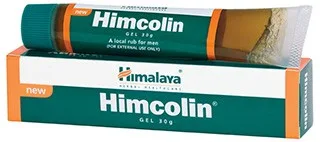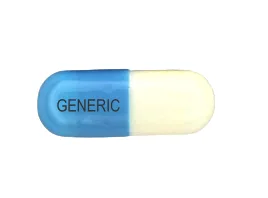- Your cart is empty
- Continue Shopping
Humira Adalimumab Canada Pharmacy $1898.76
$0.00
Humira Adalimumab Canada Pharmacy $1898.76
TO VIEW PRICE ON MOBILE CLICK ADD TO CART
- Canadian Pharmacy Online Pharmacy | Online Canadian Pharmacy
- Need More Information Call Us 1-833-356-6337
Humira Adalimumab Canada Pharmacy $1898.76
Brand Name
Generic Name
adalimumab, pronounced ay da LIM yoo mab
What is Humira?
Humira is a medication to help relieve pain and inflammation in your body. This pain may be from conditions such as rheumatoid arthritis, juvenile idiopathic arthritis, psoriatic arthritis, ankylosing spondylitis, and plaque psoriasis. You may also be prescribed Humira to treat Crohn’s disease and ulcerative colitis if other medications have been tried without success. Your doctor may also prescribe Humira for reasons not listed in this medication guide.
Key Facts About Humira
The use of Humira has been reported to rarely cause a fast-growing type of lymphoma, which is a cancer. This condition can affect your liver, spleen, and bone marrow, and it can be fatal. This has occurred mostly in teenagers and young adults who use Humira or similar medications to treat Crohn’s disease or ulcerative colitis. You should contact your doctor immediately while taking Humira if you develop symptoms like: a fever, night sweats, itching, loss of appetite, pain in your upper stomach that may spread to your shoulder, nausea, easy bruising or bleeding, pale skin, feeling light-headed or short of breath, rapid heart rate, dark urine, clay-colored stools, jaundice, weight loss, tiredness or a feeling full after eating only a small amount.
Humira may lower your ability to fight infections. Try to avoid being near people who are ill, and do not receive a “live” vaccination while taking Humira.
Humira can raise your risk of bleeding, so take care when handling sharp objects.
You have a small possibility of getting an infection while taking Humira, which can sometimes be serious or even fatal. Tell your doctor immediately if you experience signs of an infection like a: fever, chills, a sore throat or flu symptoms.
Humira is in FDA pregnancy category B. Humira is not known to harm an unborn baby or pass into breast milk.
Before You Take Humira
If you are allergic toadalimumab, or if you are also being treated with abatacept (Humira) or anakinra (Kineret) you should not take Humira.
If you have or ever have had tuberculosis, if anyone in your household has tuberculosis, or if you have recently traveled to an area where tuberculosis is common you must inform your doctor before taking Humira.
Let your doctor know if you have an active or recent infection, open sores or skin wounds, hepatitis B or congestive heart failure.
Tell your doctor if you have lupus, an allergy to latex rubber or a disease that affects your nerves or muscles, like multiple sclerosis, myasthenia gravis or Guillain-Barre syndrome.
If you have recently been vaccinated with BCG (Bacille Calmette-Guerin) or if you are scheduled to receive any vaccines you must inform your doctor immediately. Children who are prescribed Humira should be current on all of their vaccinations.
The use of Humira can increase your risk of certain types of cancer, like breast, colon, prostate, lung and especially lymphoma (cancer of the lymph nodes). This risk seems to be greater in children and young adults who take Humira. There is also a chance that you may develop an autoimmune disorder, such as a lupus-like syndrome. Talk to your doctor about your individual risk for these diseases before starting treatment with Humira.
You should not receive a “live” vaccination while taking Humira. Examples of “live” vaccines include measles, mumps, rubella (MMR), Bacillus Calmette-Guérin (BCG), oral polio, rotavirus, smallpox, typhoid, yellow fever, varicella (chickenpox), H1N1 influenza and the nasal flu vaccine.
Humira Drug Interactions
All drugs that you take may interact with Humira. You should tell your doctor about all of the medications you use. This includes prescription drugs, vitamins, supplements and herbal products, and over the counter medications. You should not begin taking a new medication without telling your doctor first.
Directions for Taking Humira
You should take Humira exactly as prescribed by your doctor. Do not take Humira in larger or smaller amounts, or for shorter or longer than recommended. Follow the directions on your prescription label.
You will usually receive Humira every other week, but some patients are prescribed this medication at different intervals. Your doctor will tell you what the right dose of Humira is for you.
Your doctor may want to have your blood tested often if you take Humira long-term.
Humira is a medication that is injected under your skin. You may be taught to use the injections at home. You should not self-inject Humira if you do not fully understand how to give yourself the injection and properly dispose of the used needles, syringes and other items used to inject the medicine.
The disposable needles should be used one time only. You must throw away all used needles in a puncture-proof container. If you do not own a puncture-proof container your pharmacist can tell you how to get one. Be sure to keep used needles and your puncture-proof container away from children and pets.
You should use each pre-filled syringe of Humira only one time. Be sure to throw away any unused portion of this medication. You should not save any medication for later use.
If your skin is bruised, red, tender, or hard you should not inject into that area.
If you need surgery your surgeon needs to be told that you are taking Humira.
You can store Humira in the refrigerator but do not freeze it. If you are traveling with the prefilled syringe you can keep it in a small cooler with an ice pack, protected from the light.
Be sure not to remove the prefilled syringe from the refrigerator until you are ready to give yourself an injection. If you see that this medication has changed colors or has any particles in it do not use it. Call your doctor for a new prescription.
If you miss a dose of Humira you should inject yourself as soon as you remember, and then continue on your regular dosing schedule. Never take an extra dose of Humira to make up for a missed one.
Humira Side Effects
If you experience any of the following adverse effects you should stop taking Humira and seek emergency medical help immediately:
- allergic reaction including breathing difficulties, hives and swelling of your face, lips, throat and tongue
- butterfly shaped rash that worsens in sunlight
- chest pain and cough, may cough up blood or mucous
- confusion
- fever alongside muscle aches, vomiting, unusual thoughts or behavior, and/or seizures
- infection signs such as a fever, chills, sore throat or flu symptoms
- loss of hair
- lymphoma symptoms such as a fever, night sweats, itching, loss of appetite, pain in your upper stomach that may spread to your shoulder, nausea, easy bruising or bleeding, pale skin, feeling light-headed or short of breath, rapid heart rate, dark urine, clay-colored stools, jaundice, weight loss, tiredness or a feeling full after eating only a small amount
- mouth sores
- muscle and joint pain
- seizures
- shortness of breath
- skin pain, flowed by a purple or red rash which spread, mostly in your face or upper body, and causes blistering or peeling
- stiff neck
- swelling of your ankles and feet
- urinating that is burning or painful
- weakness, numbness and tingly feeling in your legs
Less serious side effects of Humira may include:
- headache
- nausea
- pain, redness, itching or swelling at your injection site
- sinus pain
- stomach pain
- stuffy nose
It should be noted that this is not a complete list of possible side effects of Humira. You should contact your physician for a complete list and medical advice regarding these effects.
Humira Description and Dosing
Humira is available as a single-use pen (Humira Pen), containing a 1 mL prefilled glass syringe with a fixed 27 gauge ½ inch needle, providing 40 mg (0.8 mL) of Humira. You may also be prescribed a Prefilled Syringe, which is a single-use, 1 mL prefilled glass syringe with a fixed 27 gauge ½ inch needle, providing 40 mg (0.8 mL) of Humira or a single-use, 1 mL prefilled glass syringe with a fixed 27 gauge ½ inch needle, providing 20 mg (0.4 mL) of Humira.
You should consult your doctor for specific dosing of Humira pertaining to you, before you buy Humira from Canadian Pharmacy Do not attempt to alter or change your dose without your physician’s consent.
If you suspect that you have overdosed with Humira you should seek emergency help immediately.
Ingredients in Humira
The primary active ingredient in Humira is adalimumab. Each prefilled syringe delivers 0.8 mL (40 mg) of drug product. Each 0.8 mL of Humira form Online Canada Pharmacy also contains 4.93 mg sodium chloride, 0.69 mg monobasic sodium phosphate dihydrate, 1.22 mg dibasic sodium phosphate dihydrate, 0.24 mg sodium citrate, 1.04 mg citric acid monohydrate, 9.6 mg mannitol, 0.8 mg polysorbate 80, and Water for Injection. The pediatric prefilled syringe also contains the inactive ingredients of 2.47 mg sodium chloride, 0.34 mg monobasic sodium phosphate dihydrate, 0.61 mg dibasic sodium phosphate dihydrate, 0.12 mg sodium citrate, 0.52 mg citric acid monohydrate, 4.8 mg mannitol, 0.4 mg polysorbate 80, and Water for Injection.
Manufacturer By Zydus Cadila
IMPORTANT NOTES:
The information contained on this website is intended as an educational aid only. It is not intended as medical advice for individual conditions or treatment. It is not a substitute for a medical exam, nor does it replace the need for services provided by medical professionals. Talk to your doctor, nurse or pharmacist before taking any prescription or over the counter drugs (including any herbal medicines or supplements) or following any treatment or regimen. Only your doctor, nurse, or pharmacist can provide you with advice on what is safe and effective for you.
Related Products
HYZAAR
HIMCOLIN
Can't Login into Your Account?
Call Us: 1-833-356-6337

We Accept Credit Cards, International Money Orders, Cash, Certified Checks and Bank Transfer
Canada Canadian Pharmacy dispenses all medications from licensed and regulated independent pharmacy partners internationally, including but not limited to Australia, Canada, New Zealand, India, Mauritius, Turkey, United States, Singapore and the United Kingdom. All Images on this site are registered trademarks of original manufacturers, international exporters, and property of their respective owners and are for reference only. Canada Pharmacy Online procures all products from licensed regulated international in order to provide you unbeatable lowest prices and prescription discounts for all your prescription medications, medications and Canadian Drugs at Canada Pharmacy Online.
CUSTOMER INFORMATION
TOP SELLERS
2005-2023 Rxdrugscanada.com






